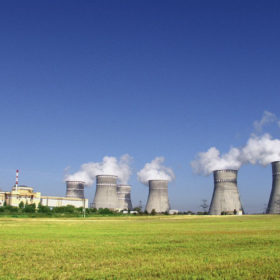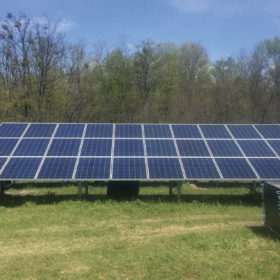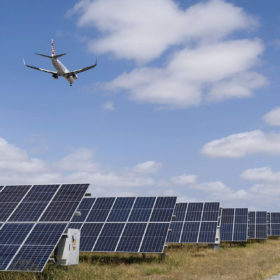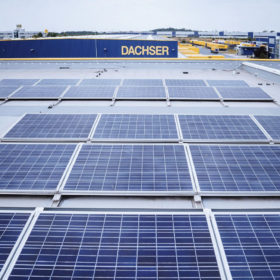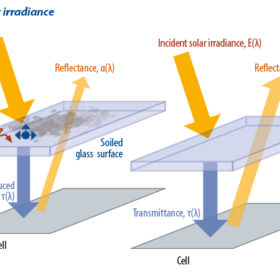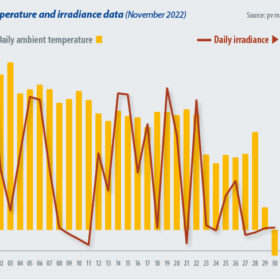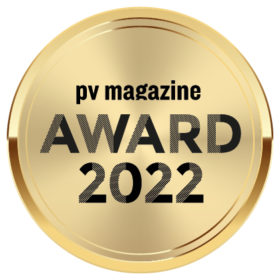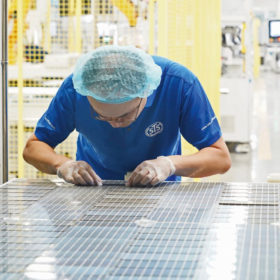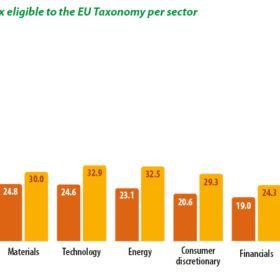Hope springs renewable
Russia is destroying Ukraine’s energy infrastructure, raising questions about how to ensure the safety and function of the country’s energy industry, particularly its nuclear power plants. What role can renewable energy play in such extreme circumstances? Vitaly Daviy, chief executive of clean-power trade show organizer IB Centre, shares his thoughts.
Giga and giga
pv magazine Australia’s Natalie Filatoff reports on the benefits of planning vast solar project pipelines, and the barriers faced by those who dare to dream big.
Small change, big effect
Starting this year, ground-mounted solar modules in Germany can be replaced before the end of their service life, unlocking gigawatt-scale potential for new generation capacity without lengthy permitting processes or the need for new sites. Opinions differ as to what should happen with the decommissioned but still functioning modules, as pv magazine Deutschland’s Sandra Enkhardt reports.
Ready for takeoff
Airport PV can provide an instant boost to emission-reduction efforts while work continues on sustainable aviation fuels. Developing solar projects at or near airports, however, is not as straightforward as typical ground-mount installations, as Airsight’s Christoph Struempfel explains.
From diesel to DC
For a long while, it looked as if hydrogen fuel cells would be the technology of choice for emissions-free road transport. However, truck manufacturers and freight forwarders recently turned their attention to battery-electric vehicles. This will require special charging technology and PV looks set to play an important role.
Rethinking soiling
The two dominant methods used in the industry to estimate soiling levels on solar projects go some way in mitigating losses, but there is plenty of scope for more accurate observation, as NRG Systems’ Alexandra Arntsen reports.
pv magazine test – November 2022 results
We are pleased to present the next batch of energy yield results from the outdoor test field at Xi’an, China, alongside analysis from George Touloupas, senior director of technology and quality at CEA.
The pv magazine Award 2022
The prospects for solar and energy storage grew significantly in 2022, alongside renewable energy more broadly. It was a year of energy crises driven by conflict and much of the world was forced to recognize the risk of relying on far-flung regions for big chunks of their essential energy supplies. Such developments are driving a huge expansion in the production of renewable energy products and are generating stiff competition for technology leadership.
Shining a light on supply chains
The drivers for PV supply-chain traceability could rub against a solar industry enjoying a true seller’s market, with demand outstripping supply. However, supply-chain auditing services are gaining support in increasingly regulated environments. pv magazine’s Tristan Rayner has spoken to a number of auditing experts about how they shine a light on often-opaque operations.
Weak green-activity scores offer opportunity
The binary approach and rigor of the taxonomy of sustainable activities drawn up by the EU – which labels business as “green” or not – means companies and asset managers score quite low. The first round of reporting showed wide discrepancies between sectors, with real estate companies reporting an average 84.5% of revenue as potentially green against a score of only 4% for consumer staples. Is that down to the backward state of decarbonization or the Manichean nature of the rules? BloombergNEF’s Maia Godemer takes a look.
